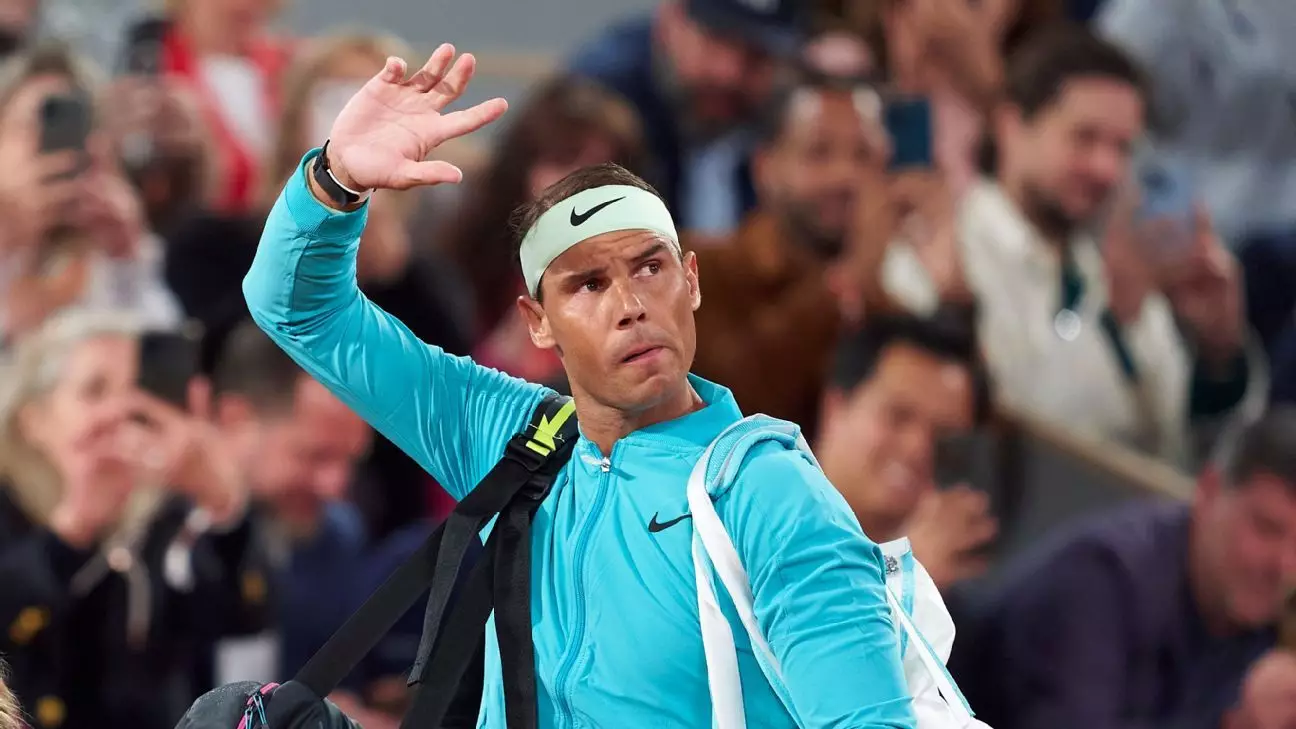As the world gears up for the next edition of the French Open, tennis enthusiasts are not just preparing for exhilarating matches; they are also poised to witness a heartfelt tribute to one of the sport’s greatest champions, Rafael Nadal. Next month, the tournament will pay homage to Nadal’s extraordinary career, marked by an unprecedented 14 titles at Roland Garros, highlighting his profound impact on the sport and the venue that became his kingdom.
It is a bittersweet moment for fans, as last year marked Nadal’s unexpected first-round exit from the tournament, a poignant punctuation mark to a storied career. The Spaniard’s defeat at the hands of Alexander Zverev was a shock not just because of the loss, but also due to the uncertainty it introduced regarding his future presence at the Grand Slam. Nadal’s subsequent retirement from professional tennis last November cemented that moment as a watershed in tennis history, closing the door on an era that many fans struggled to accept.
A Glorious Celebration of Achievements
Tournament director Amelie Mauresmo made it clear how significant this tribute will be, emphasizing that Nadal’s legacy is likely unmatched in the annals of tennis. “Rafa made history at Roland Garros, and his 14 titles will perhaps remain unequaled,” she stated. The ceremony will take place at the end of the day session on May 25, on the storied Court Philippe Chatrier, symbolizing not just nostalgia for the past but also a vision of what the future holds for tennis.
Moreover, Nadal’s recognition will extend beyond mere ceremony. There will be a statue raised in his honor within the grounds of Roland Garros, a permanent acknowledgment of his monumental feats. Additionally, he will feature in an exhibition at the tournament’s museum, celebrating not just his victories but also the emotional narratives of resilience and sportsmanship woven into his matches.
Balancing Tradition with Modern Demands
While the homage to Nadal captures the spirit of tradition, the French Open is also faced with the pressing need to evolve in line with contemporary demands—both in terms of technology and player welfare. The prize pool for this year’s tournament has risen to €56.352 million, reflecting a 5.21% increase that aligns with the growing financial expectations from top players. The organizers have signaled their openness to meaningful discussions about future enhancements, a necessary step in maintaining the Grand Slam’s allure in an increasingly competitive landscape.
However, one aspect where the French Open stands firm is its stance on maintaining tradition. Chief Gilles Moretton’s resolution to retain line judges in lieu of fully adopting electronic line calling demonstrates a commitment to the human element of officiating, something that has been a hallmark of clay-court tennis. This decision resonates with long-time fans who appreciate the skill and discretion involved in the traditional approach.
Creating a Larger Community Experience
As the French Open seeks to reinvigorate the excitement within its borders, organizers have exciting plans to capitalize on the success of the recent Paris Olympics. An innovative fan zone will feature giant screens displaying live matches at Place de la Concorde. This initiative, aimed at enhancing community involvement and engagement, will allow up to 5,000 fans to enjoy the atmosphere of the tournament, echoing the vibrant energy of last summer’s Olympic festivities.
In a world where sports often seem to become increasingly corporate and isolated, this initiative reflects a desire to foster community spirit, echoing Nadal’s own values of humility and connection with fans. Mauresmo emphasized the determination to harness the Olympic momentum, showing that the French Open is not merely a tournament but a celebration of tennis culture and community.
As Nadal prepares to be honored on this grand stage, it is evident that his legacy will continue to inspire generations. The homage will serve to remind fans and players alike of the beauty and emotional resonance that the sport can deliver—an unforgettable journey intricately tied to the history of the French Open itself. The convergence of honoring the past while embracing the possibilities of the future speaks volumes about tennis’s evolutionary path—a pathway that, in many ways, has been carved out by legends like Rafael Nadal.

